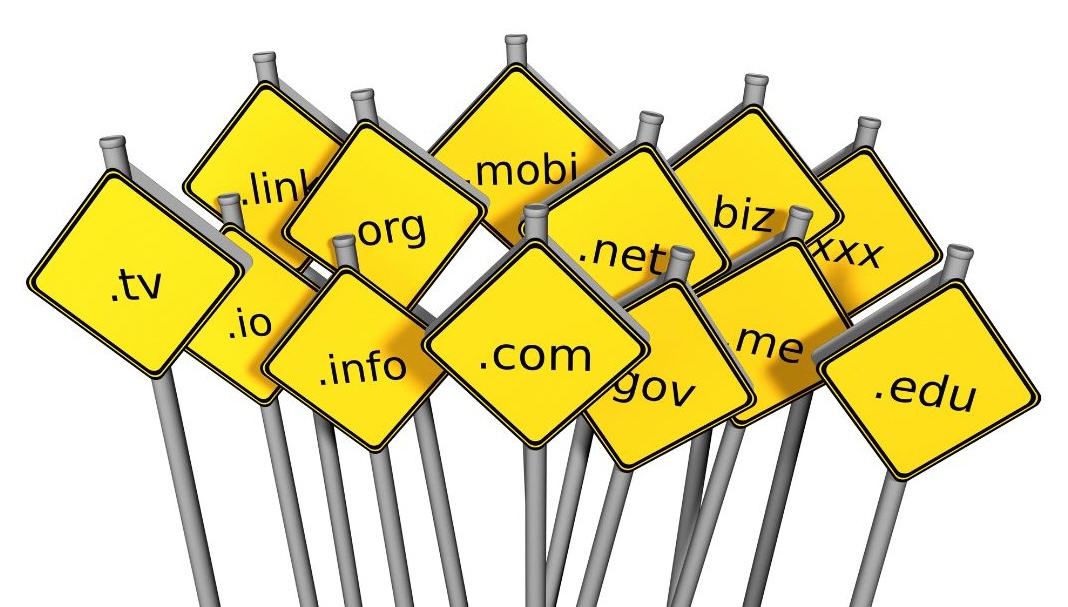
In the SEO space, everything matters—even your domain extension. The .com extension has long been the gold standard, but businesses and individuals are now adopting nontraditional extensions like .tech, .ai, .shop, and others. But how do these alternatives impact search rankings, user trust, and overall online visibility?
Some believe a unique domain extension can assist with branding and niche specificity, while others worry it will harm SEO performance when it comes to search ranking positions. In this article, we’ll break down how search engines process nonstandard domains if they affect rankings and what you should keep in mind before choosing domain name and extension for your website.
What Are Nontraditional Domain Extensions?

Nontraditional domain extensions include country-specific extensions or generic top-level domains (gTLDs). These are newer types of generic domains that give creativity beyond the traditional .com,.org, and .net. They represent unique extensions such as .tech, .ai, .shop, .online, .us, .name and a host of others that are specific to industries, interests, or branding potential.
With the Internet Corporation for Assigned Names and Numbers (ICANN) adding more domain options, people and businesses have greater liberty to choose a domain that suits their business or niche. For example, .ai is utilised by AI startups, and .shop is utilised by e-commerce websites.
Do Nontraditional Domain Extensions Affect Rankings?
No, nontraditional domain extensions do not affect rankings—at least not in the way most assume. Google itself has indicated that all gTLDs are treated equally by its algorithm.
Even though there is no inherent SEO advantage or disadvantage to using a nontraditional domain, there are a few indirect considerations that do affect rankings.
No Direct Ranking Boost or Penalty
Search engines are not programmed to favor .com over .tech, .ai, .shop, or other gTLDs. The ranking ability of your site comes from the nature of its content, backlinks, and usability and not from the top-level domain.
User Trust and Click-Through Rates (CTR)
A newer non-standard domain may look good for brand aesthetics, but it may appear out of place to users, potentially leading to reduced trust and fewer clicks. Since click-through rate (CTR) can have an impact on search rankings, this could affect SEO performance indirectly.
Conversely, a carefully chosen domain extension that is branded according to your niche (e.g. .crypto for a blockchain platform) can lead to improved brand visibility and boost engagement.
Backlink Acquisition Challenges
A few websites may hesitate to link to an unconventional domain because it might resemble spam, or users may consider it strange and unfamiliar. The fewer backlinks, the more challenging it becomes to gain authority, one of the key ranking factors. Great content is an excellent way for a website to overcome the potential problems with using an unconventional domain name.
Country-Specific TLDs (ccTLDs) and Localisation
If a domain suffix is a ccTLD like .uk or .de, search engines are able to assume the site targets users in a specific country. This is appropriate for local SEO but can prove limiting when your business is trying to target a global audience.
Your website’s SEO ranking success will be based on good content, technical SEO, and getting quality backlinks, regardless of whether your site ends with .com, .xyz, or .tech. Though making use of a nonconventional top-level domain extension won’t break or improve your SEO, it comes with some perks and downsides for brands, which we’ll take a look at next.
Branding Benefits of Nontraditional Domains

Alternative domain extensions offer you more than just availability—they can be good for branding, increase the memorability of your domain, and align with your industry or niche. Here’s how alternative domains can be a value-added branding tool:
Increased Availability and Shorter Domain
Short, easy-to-remember .com domain names are becoming increasingly difficult to secure; alternative extensions offer an attractive way for brands to create web addresses with unique components. Instead of settling for a hyphenated or long .com name, you can secure a tidy, branded URL with an appropriate extension (such as brand.tech instead of brandtechsolutions.com).
Industry-Specific Relevance
There are many new gTLDs that have been developed with industries in mind, so they immediately resonate with target markets when specific niches are searched on the internet. Examples include:
- .tech for technology companies
- .ai for artificial intelligence start-ups
- .shop for Internet shopping businesses
- .design for creatives and agencies
Having an industry-specific extension can make your domain name more descriptive and memorable.
Stronger Brand Identity
A unique domain extension can differentiate a brand, making it look more modern and innovative. Notion.so and bit.ly are great examples of businesses using alternative domains to strengthen their brand image.
Increased Marketing and Word-of-Mouth Appeal
A short, catchy domain is easier to say and put in print. Take, for instance, a name like coffee.shop or eco.store, it sounds more intuitive and rolls off the tongue more smoothly than coffeestoreonline.com.
Potential SEO Benefits Due to Branding
Domain extensions neither directly influence or negatively impact SEO. However, strong branding can lead to better user engagement, more meaningful backlinks, and higher click-through rates—elements that do influence search rankings.
Potential Drawbacks and SEO Challenges of New gTLDs
While nontraditional domain extensions offer branding possibilities and availability, they have potential pitfalls and SEO concerns. Here are some of the key points to search for before choosing a unique domain extension:
Lower User Trust and Recognition
Most internet users are accustomed to .com,.org, and .net and will be hesitant to click on unusual extensions like. .xyz, .club, or .shop. Some will likely assume non-traditional domains are less secure or even associate them with spam sites, which could impact click-through rates and engagement.
Risk of Being Flagged as Spam
Some nontraditional domain extensions have been used as spam links or are simply junk sites with no value. This means they are often distrusted by search engines and email providers. The .xyz and .info extensions, in particular, have been used for spam in the past, and this may make it even harder for your site to be trusted if you use them.
Geotargeting Issues with ccTLDs
Some nonconventional extensions are actually country-code TLDs (ccTLDs), even if they appear generic. Extensions like .ai (Anguilla) and .io (British Indian Ocean Territory), for example, are widely used by tech companies but are region-specific. This can affect international SEO if search engines view your website as being aimed at a particular region.
Potential Difficulty in Offline Marketing
If your website’s domain name is very common, people might unknowingly think your website uses a.com or another well-known TLD. This can lead to lost traffic, especially if someone else owns the .com version of your domain.
Final Thoughts
Nonconventional domain extensions offer strong branding opportunities, relevance, and greater availability. If chosen wisely, a nontraditional domain extension will increase your site’s uniqueness and contribute to your brand identity. However, it is important to apply best practices—search, optimise your site, build credibility, and monitor user interactions.
Ultimately, the success or failure of your domain choice depends on your overall SEO strategy, content quality, and reception of your brand by your audience. If a nontraditional domain is part of your business model and marketing strategy, it can be just as effective as a traditional .com in driving search visibility and engagement.
Contact Us
Cheshire (Head Office)
Manchester
Get in touch
Let’s find the best solution for your business

